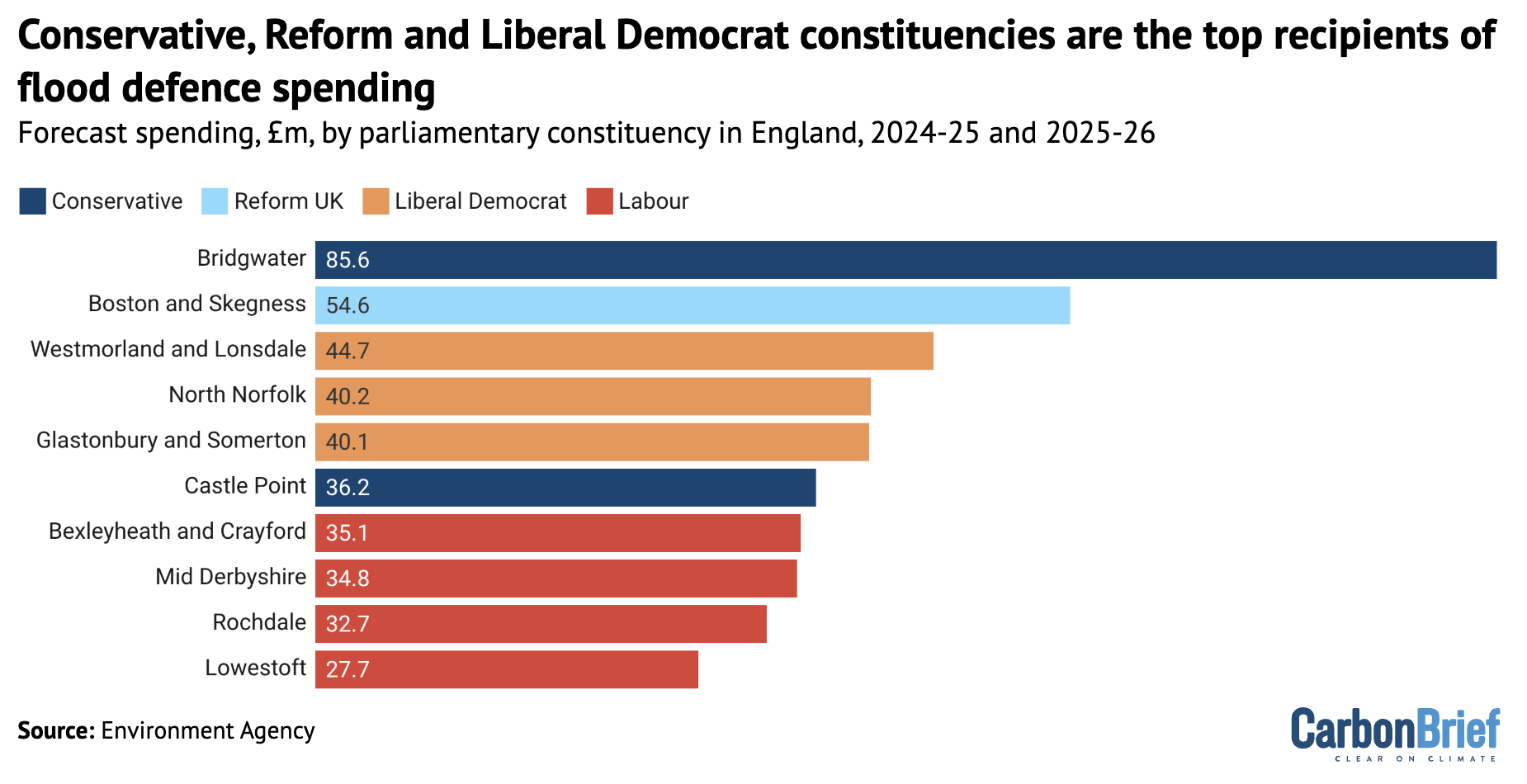The government of Colombia has announced it will host the first international conference on phasing out fossil fuels in April 2026, with the aim of providing countries with a global platform for co-operating on a transition away from planet-heating coal, oil and gas.
The announcement comes as a major report by climate think-tanks warned on Monday that governments are planning to increase fossil fuel supplies by twice the amount that would be consistent with the goals of the Paris Agreement by 2030.
Colombia’s Minister of Environment and Sustainable Development Irene Vélez said in a statement that the conference will be a “pivotal moment” for Global South countries to lead the charge towards cleaner energy systems.
“Together, we will chart a path that prioritises life, equity and sustainability over destruction and inequality. This is our moment, our mandate – to build a future beyond fossil fuels and ensure reparative justice for everyone,” Vélez said.
Vanuatu, a small Pacific island nation that led efforts to hold big polluters accountable through an advisory opinion issued by the International Court of Justice (ICJ) in July, expressed support for the conference.
Its climate minister Ralph Regenvanu said the fossil fuel transition is an “existential imperative” for the island, adding that the conference proposed by Colombia would be a “pivotal step” towards forging a common roadmap for how to achieve that goal.
At COP28 in Dubai in 2023, governments agreed to transition away from fossil fuels in energy systems, but have since failed to make progress on this pledge. At COP29 the following year, Saudi Arabia successfully blocked all mentions of fossil fuels.
Brazil’s environment minister has suggested talks on a roadmap for a planned energy transition at this year’s COP30, but it is not on the official agenda.
In June, Germany’s former climate envoy, Jennifer Morgan – an architect of the landmark Dubai deal – told an event at London Climate Action Week that the COP28 breakthrough is now “at risk” unless delivery on its commitments speeds up.
Tzeporah Berman, co-chair of the Fossil Fuel Non-Proliferation Treaty Initiative, said in a statement that Colombia’s initiative marked “a bold and necessary step towards climate leadership”.
The decision to convene the conference was reached by the 17 countries participating in discussions to develop such a treaty, the initiative added.
What could a Fossil Fuel Non-Proliferation Treaty look like?
Colombia said more details on the conference will be announced after a ministerial meeting on the sidelines of COP30, where countries will issue a joint declaration committing to “a just and equitable transition away from fossil fuels”.
Coal, oil and gas expansion
But as governments struggle to coordinate a fossil fuel phase-out, their energy ministries have kept busy doubling down on the polluting fuels. In Monday’s “production gap” report, experts warned that the planned expansion of coal, oil and gas by 2030 exceeds the levels consistent with the Paris Agreement by more than 120%.
According to the report, 11 of the world’s top 20 fossil fuel producers have even boosted their plans to extract coal, oil and gas since the COP28 transition pledge was adopted in 2023.
Russia and India, for example, are singled out in the report for heavily expanding plans for new coal by 2030 – with India hitting a record renewables roll-out while also planning the largest increase in coal production by volume (7.3 exajoules). An exajoule is a unit of energy, with the primary energy supply of the US in 2024 at nearly 92 exajoules.
Saudi Arabia plans the largest expansion of oil by 2030 when taking into account sheer volume (4.2 exajoules), but the comparatively smaller oil industry of COP30 host nation Brazil is set for a 56% expansion between 2023 and 2030.
The report highlighted that “every year that countries fail to make progress in curbing fossil fuel production and use, it becomes harder for the world to achieve its climate goals”.
“While many countries have committed to a clean energy transition, many others appear to be stuck using a fossil-fuel-dependent playbook, planning even more production than they were two years ago,” said lead author Derik Broekhoff, climate policy director at the Stockholm Environment Institute (SEI).
Christiana Figueres, a former head of the UN’s climate body, said the report should serve as a “warning and a guide”, adding that while renewables will crowd out fossil fuels eventually, governments need to take “deliberate action” to close the gap in time to meet the Paris Agreement climate goals.
To achieve those, another of the report’s authors, Emily Ghosh of SEI, said that by COP30, governments must “commit to expand renewables, phase out fossil fuels, manage energy demands, and implement community-centered energy transitions”.
The post Colombia announces fossil fuel phase-out summit to be held in 2026 appeared first on Climate Home News.
Colombia announces fossil fuel phase-out summit to be held in 2026
Climate Change
Southern Right Whales Are Having Fewer Calves; Scientists Say a Warming Ocean Is to Blame
After decades of recovery from commercial whaling, climate change is now threatening the whales’ future.
Southern right whales—once driven to near-extinction by industrial hunting in the 19th and 20th centuries—have long been regarded as a conservation success. After the International Whaling Commission banned commercial whaling in the 1980s, populations began a slow but steady rebound. New research, however, suggests climate change may be undermining that recovery.
Southern Right Whales Are Having Fewer Calves; Scientists Say a Warming Ocean Is to Blame
Climate Change
Analysis: Constituency of Reform’s climate-sceptic Richard Tice gets £55m flood funding
The Lincolnshire constituency held by Richard Tice, the climate-sceptic deputy leader of the hard-right Reform party, has been pledged at least £55m in government funding for flood defences since 2024.
This investment in Boston and Skegness is the second-largest sum for a single constituency from a £1.4bn flood-defence fund for England, Carbon Brief analysis shows.
Flooding is becoming more likely and more extreme in the UK due to climate change.
Yet, for years, governments have failed to spend enough on flood defences to protect people, properties and infrastructure.
The £1.4bn fund is part of the current Labour government’s wider pledge to invest a “record” £7.9bn over a decade on protecting hundreds of thousands of homes and businesses from flooding.
As MP for one of England’s most flood-prone regions, Tice has called for more investment in flood defences, stating that “we cannot afford to ‘surrender the fens’ to the sea”.
He is also one of Reform’s most vocal opponents of climate action and what he calls “net stupid zero”. He denies the scientific consensus on climate change and has claimed, falsely and without evidence, that scientists are “lying”.
Flood defences
Last year, the government said it would invest £2.65bn on flood and coastal erosion risk management (FCERM) schemes in England between April 2024 and March 2026.
This money was intended to protect 66,500 properties from flooding. It is part of a decade-long Labour government plan to spend more than £7.9bn on flood defences.
There has been a consistent shortfall in maintaining England’s flood defences, with the Environment Agency expecting to protect fewer properties by 2027 than it had initially planned.
The Climate Change Committee (CCC) has attributed this to rising costs, backlogs from previous governments and a lack of capacity. It also points to the strain from “more frequent and severe” weather events, such as storms in recent years that have been amplified by climate change.
However, the CCC also said last year that, if the 2024-26 spending programme is delivered, it would be “slightly closer to the track” of the Environment Agency targets out to 2027.
The government has released constituency-level data on which schemes in England it plans to fund, covering £1.4bn of the 2024-26 investment. The other half of the FCERM spending covers additional measures, from repairing existing defences to advising local authorities.
The map below shows the distribution of spending on FCERM schemes in England over the past two years, highlighting the constituency of Richard Tice.
By far the largest sum of money – £85.6m in total – has been committed to a tidal barrier and various other defences in the Somerset constituency of Bridgwater, the seat of Conservative MP Ashley Fox.
Over the first months of 2026, the south-west region has faced significant flooding and Fox has called for more support from the government, citing “climate patterns shifting and rainfall intensifying”.
He has also backed his party’s position that “the 2050 net-zero target is impossible” and called for more fossil-fuel extraction in the North Sea.
Tice’s east-coast constituency of Boston and Skegness, which is highly vulnerable to flooding from both rivers and the sea, is set to receive £55m. Among the supported projects are beach defences from Saltfleet to Gibraltar Point and upgrades to pumping stations.
Overall, Boston and Skegness has the second-largest portion of flood-defence funding, as the chart below shows. Constituencies with Conservative and Liberal Democrat MPs occupied the other top positions.

Overall, despite Labour MPs occupying 347 out of England’s 543 constituencies – nearly two-thirds of the total – more than half of the flood-defence funding was distributed to constituencies with non-Labour MPs. This reflects the flood risk in coastal and rural areas that are not traditional Labour strongholds.
Reform funding
While Reform has just eight MPs, representing 1% of the population, its constituencies have been assigned 4% of the flood-defence funding for England.
Nearly all of this money was for Tice’s constituency, although party leader Nigel Farage’s coastal Clacton seat in Kent received £2m.
Reform UK is committed to “scrapping net-zero” and its leadership has expressed firmly climate-sceptic views.
Much has been made of the disconnect between the party’s climate policies and the threat climate change poses to its voters. Various analyses have shown the flood risk in Reform-dominated areas, particularly Lincolnshire.
Tice has rejected climate science, advocated for fossil-fuel production and criticised Environment Agency flood-defence activities. Yet, he has also called for more investment in flood defences, stating that “we cannot afford to ‘surrender the fens’ to the sea”.
This may reflect Tice’s broader approach to climate change. In a 2024 interview with LBC, he said:
“Where you’ve got concerns about sea level defences and sea level rise, guess what? A bit of steel, a bit of cement, some aggregate…and you build some concrete sea level defences. That’s how you deal with rising sea levels.”
While climate adaptation is viewed as vital in a warming world, there are limits on how much societies can adapt and adaptation costs will continue to increase as emissions rise.
The post Analysis: Constituency of Reform’s climate-sceptic Richard Tice gets £55m flood funding appeared first on Carbon Brief.
Analysis: Constituency of Reform’s climate-sceptic Richard Tice gets £55m flood funding
Climate Change
US Government Is Accelerating Coral Reef Collapse, Scientists Warn
Proposed Endangered Species Act rollbacks and military expansions are leaving the Pacific’s most diverse coral reefs legally defenseless.
Ritidian Point, at the northern tip of Guam, is home to an ancient limestone forest with panoramic vistas of warm Pacific waters. Stand here in early spring and you might just be lucky enough to witness a breaching humpback whale as they migrate past. But listen and you’ll be struck by the cacophony of the island’s live-fire testing range.
US Government Is Accelerating Coral Reef Collapse, Scientists Warn
-
Greenhouse Gases7 months ago
Guest post: Why China is still building new coal – and when it might stop
-
Climate Change7 months ago
Guest post: Why China is still building new coal – and when it might stop
-

 Greenhouse Gases2 years ago
Greenhouse Gases2 years ago嘉宾来稿:满足中国增长的用电需求 光伏加储能“比新建煤电更实惠”
-
Climate Change2 years ago
Bill Discounting Climate Change in Florida’s Energy Policy Awaits DeSantis’ Approval
-
Climate Change2 years ago
Spanish-language misinformation on renewable energy spreads online, report shows
-

 Climate Change2 years ago
Climate Change2 years ago嘉宾来稿:满足中国增长的用电需求 光伏加储能“比新建煤电更实惠”
-
Climate Change Videos2 years ago
The toxic gas flares fuelling Nigeria’s climate change – BBC News
-

 Carbon Footprint2 years ago
Carbon Footprint2 years agoUS SEC’s Climate Disclosure Rules Spur Renewed Interest in Carbon Credits










